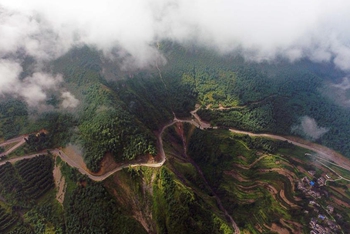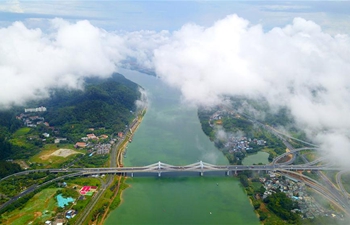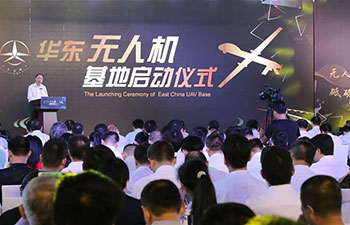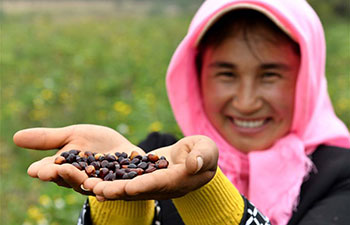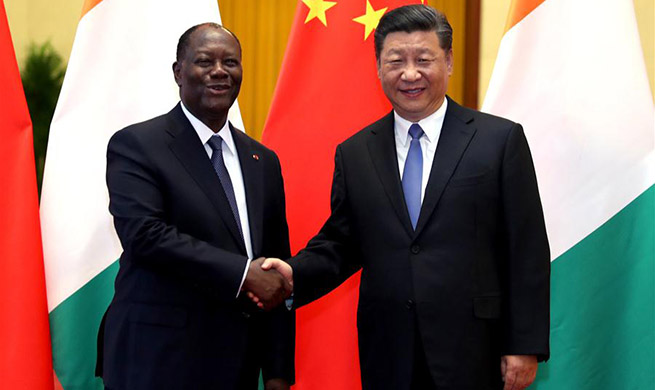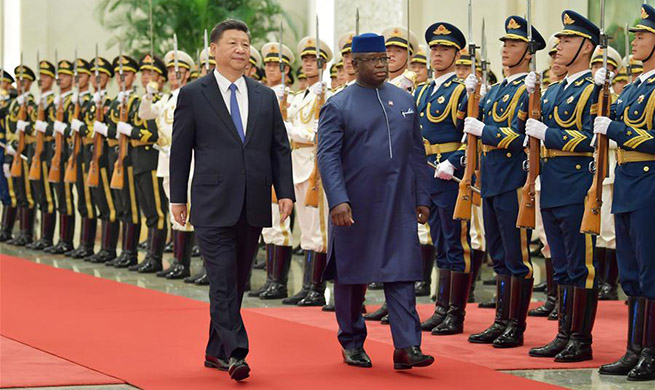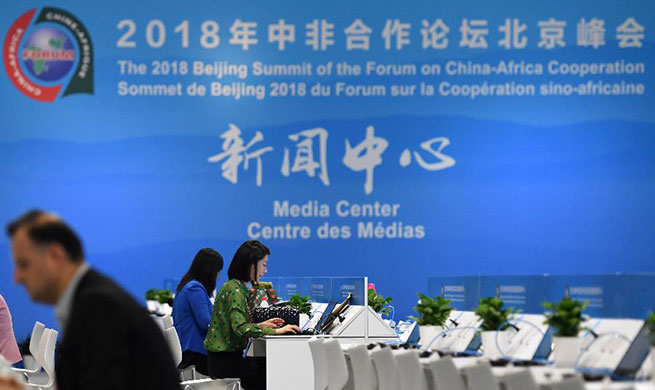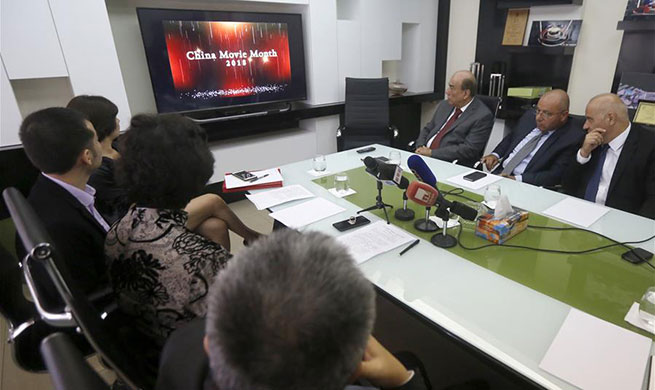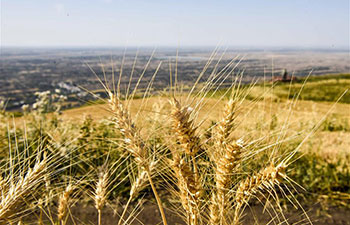by Xinhua writers Wang Jingyun, Gai Boming, He Xianfeng
BEIJING, Aug. 31 (Xinhua) -- With a sparkle in his eyes, Edwin Mwenda said moving to China four years ago was "one of the best decisions I have made in life."
Kenya-born Mwenda decided to come to China from Britain where he grew up and held a decent job. His decision baffled his family and friends.
"They would have expected me to continue my career in the UK because the job I had there provided me with quite a comfortable life.
"But I think China is opening up for people around the world, especially those from Africa, to come and study," said Mwenda, 30. "China has a long history and has made rapid progress in recent decades. I want to know how China has achieved this and what Africa can learn from it."
In 2014, Mwenda started his master's program in environmental science and engineering at Tsinghua University in Beijing and graduated in 2016, which he deemed his "greatest achievement" in China.
"The experience at that university has given me a lot of valuable skills," he said enthusiastically.
Now, Mwenda is completing his Ph.D. in political economics at the University of International Business and Economics. Meanwhile, he has put his knowledge to use by starting a project with friends, with aims to improve the lives of small-scale farmers in Africa.
"We want to integrate and package Chinese agricultural technologies to offer advanced and suitable 'agricultural solutions' for Kenya and Africa," he said.
Though rich in vast arable land, Kenya, as well as many parts of Africa, are up against various problems that lessen agricultural productivity and keep farmers in poverty.
Mwenda pointed to a map of Kenya, saying that half of the country's land was difficult to farm due to drought, and underdeveloped harvest facilities, poor crop management, lack of information and the dysfunctional market do not make things any better.
"The conditions are bad, but it also shows that Africa has large agricultural potential," he said.
To help Kenya's resource-poor farmers, Mwenda's team proposed comprehensive solutions including biogas digesters, automated greenhouses, solar-powered hardware, mobile technology software licensing for payment, farm tracking and record keeping and agro-processing machinery.
The team named their project "AHAVAH," which means "love" in Hebrew. Mwenda said that this love goes beyond feelings alone, transcending into love through action.
But the first step is always the hardest, and it is even harder to start a multinational project, he said, adding that one of the major barriers is language. "I can only speak a little Chinese, and I am improving."
The team managed to establish a pilot program. "We need to talk to more potential investors and get further guidance from them, and find companies that use the proper techniques," said team member Nelly Njoroge.
"If it can work, it can be scaled up to include more and more farmers," Mwenda said. "In doing that, they [Kenyan farmers] will not only be able to feed themselves but also have an excess of product that they could sell, enabling them to have the money to send their kids to school and lead a better life."
Mwenda said China is at the forefront of research in technology and know-how, and he believed China's practices in handling issues during its development in recent decades could provide solutions for Africa.
"[We hope] African people can change their lives, how they see themselves and how they can harness solutions on their own," he added.
Mwenda is not alone in Beijing. Through the new talent start-up program "Cirrus Project" initiated by the Zhongguancun "Belt and Road" Industrial Promotion Association, over 20 international teams, many of which are from Africa, have pursued their dream in China.
Although it is hard work, Mwenda and his friends explain that they would like to dedicate their passion, time and energy to push forward. "We've seen a lot of really positive responses," Mwenda said, "I am sure we will get over that [the difficulties] with time."
